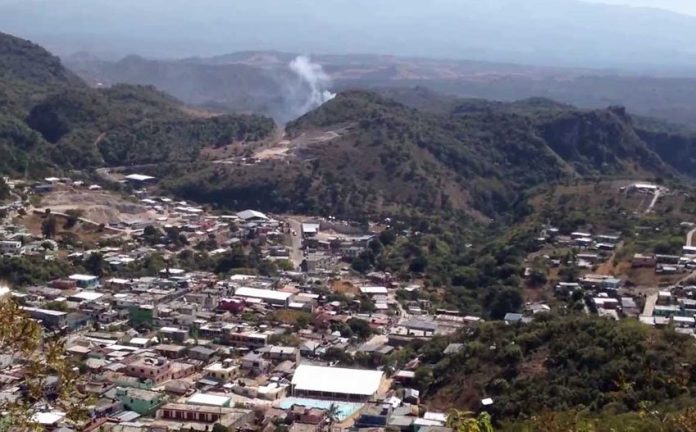When Washington scolds or threatens Mexico for its failure to halt illegal migrants, it chooses the wrong target. The target should be far tinier and less strategically, economically or politically important Guatemala.
Geography 101: To get to Mexico, emigrants from Honduras and El Salvador must cross Guatemala, which crosses the Central American isthmus from sea to sea. While it is legal for Hondurans and Salvadorans to enter Guatemala it is not legal to depart clandestinely for Mexico without completing emigration requirements.
Yet thousands do each day on foot by wading or rafting, often in plain sight of Guatemalan authorities. This exodus used to be mostly confined to Tapachula in the far southwestern corner of Chiapas but as Mexico turns up the heat on illegal immigrants the flow has spread eastward.
One source quoted by National Public Radio placed the number at 1,000 per day in remote and almost unreachable Nentón, hundreds of kilometers away. Last week I saw scores of vehicles with Guatemalan license plates streaming away from Nentón toward larger Comitán in Mexico from where northbound bus and truck service is readily available.
Either the Mexican or the Guatemalan government can stop this flow, but Guatemala is an acknowledged narco-state and probably a failed state by any definition and working in an openly dishonest environment is problematic.
U.S. diplomatic initiatives toward Guatemala feature a tepidly effete effort to discourage illegal emigration, and a more complex and noisier push to reestablish the International Commission Against Impunity in Guatemala (CICIG), a UN-sponsored investigative agency whose operating authorization has been canceled in spite of its playing a key role in jailing over 200 allegedly corrupt mostly government functionaries, including two former presidents and one vice-president of Guatemala.
Indictment of both the son and brother of the sitting president led the latter unilaterally to break the treaty with the UN that established CICIG, in open defiance of a ruling by the country’s highest constitutional court that the treaty was inviolate.
To date the U.S. has discussed but not funded an initiative called the Alliance for Prosperity to channel billions of dollars into the emigrant countries (Guatemala, El Salvador, Honduras) with the aim of stimulating investment and hence jobs, although Congress may have trouble when it comes to a vote to provide money to countries whose ex-presidents are accused of or have been found guilty of embezzlement (five to date). This initiative is still on the table.
Instead of offering pie in the sky, the U.S. should turn the official and unofficial screws on Guatemala to enforce existing laws against migrant smuggling, turn back undocumented crossers at the border river with Mexico and stop promoting an official policy suggesting that Guatemalan emigrants have a moral right to live in the U.S.
The writer is a Guatemala-based journalist.
